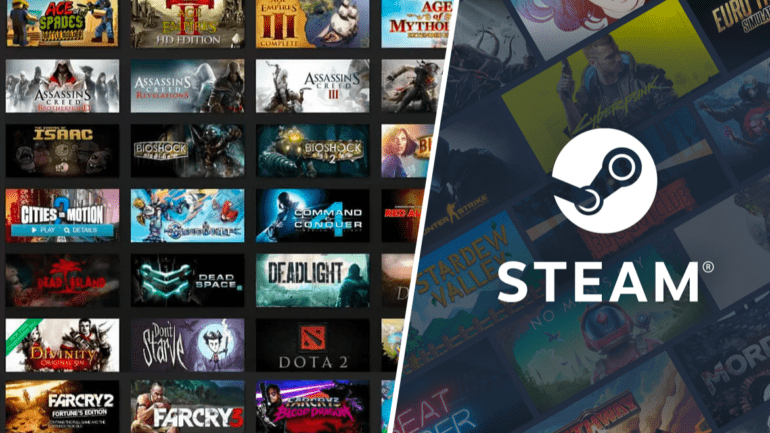TL;DR:
- Steam introduces a requirement for game developers to disclose AI-generated content.
- Developers must submit AI disclosure sections, ensuring legality and ethical use.
- Players are encouraged to report any illegal AI-generated content.
- Steam commits to an open and responsible approach to AI in gaming.
- Exception: Adult Only Sexual Content generated by Live-Generated AI.
- Copyright infringement remains a significant concern in the AI landscape.
- Major tech companies like Microsoft and Google pledge to defend subscribers in copyright lawsuits related to AI-generated content.
Main AI News:
In a move aimed at enhancing transparency and addressing potential legal concerns, Steam, the prominent video game hosting platform, has introduced a new requirement for developers. They must now disclose any AI-generated art, code, or music utilized in their games for Steam’s review prior to public release. This strategic decision, announced recently by Steam, demonstrates the platform’s commitment to staying ahead in the ever-evolving landscape of AI-assisted game development.
As part of the submission process, developers will be obligated to complete an AI disclosure section, affirming that their pre-generated materials contain no illegal or infringing content and do not engage in false marketing practices. Additionally, if their games incorporate live-generated content by AI, they must provide details about the safeguards in place to prevent any inappropriate or unlawful content from being generated during gameplay.
To further bolster this initiative, Steam is enlisting the support of the gaming community. Players are encouraged to report any instances of illegal AI-generated material they encounter, thereby fostering a collaborative effort to ensure a safe and ethical gaming environment. Steam will also inform users when a title employs machine-generated content, fostering transparency throughout the gaming experience.
Steam’s proactive measures have been driven by a deep understanding of the challenges and risks associated with AI in the gaming industry. Conversations with AI-utilizing game developers and AI tool creators have shaped these policy updates. This strategic approach will facilitate a more open and responsible integration of AI technology into Steam’s gaming ecosystem.
It is worth noting that Steam’s commitment to responsible AI implementation does come with a notable exception. Adult Only Sexual Content generated by Live-Generated AI remains outside the scope of release on the platform for the time being.
The rationale behind these measures is evident; platforms like Steam want to minimize their potential legal liability concerning the hosting of synthetic content generated by AI. The complexity of these issues necessitates a thoughtful and cautious approach. Steam acknowledges that it has taken time to arrive at these decisions, but it is unwilling to compromise the interests of players and developer partners by rushing into hasty resolutions.
In the broader context of the AI landscape, copyright infringement looms large as a significant concern. Companies like OpenAI, Google, Microsoft, Midjourney, and Stability AI, which create generative AI models, have faced legal challenges alleging the unlawful use of intellectual property to train neural networks. It is important to note that these AI model makers vehemently deny any wrongdoing.
In response to these concerns, major tech players, including Microsoft and Google, have stepped up their commitment to defending subscribers in case of copyright infringement lawsuits related to content generated with their AI models. However, the complexities of copyright law, specifically regarding the use of copyrighted content to train AI models, remain a subject of ongoing debate and legal scrutiny.
Conclusion:
Steam’s move toward transparency and responsible AI integration sets a precedent in the gaming industry. It addresses legal concerns, ensures ethical practices, and fosters a safer gaming environment. Copyright issues in the AI realm continue to be a key challenge, prompting major tech players to take proactive measures to protect subscribers.

